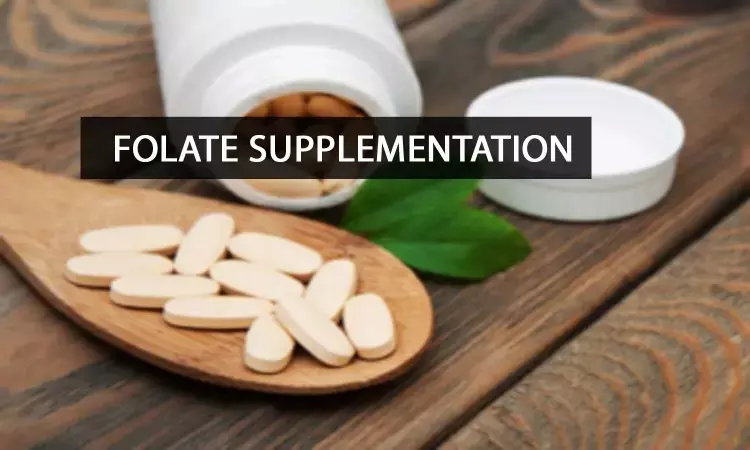- Home
- Medical news & Guidelines
- Anesthesiology
- Cardiology and CTVS
- Critical Care
- Dentistry
- Dermatology
- Diabetes and Endocrinology
- ENT
- Gastroenterology
- Medicine
- Nephrology
- Neurology
- Obstretics-Gynaecology
- Oncology
- Ophthalmology
- Orthopaedics
- Pediatrics-Neonatology
- Psychiatry
- Pulmonology
- Radiology
- Surgery
- Urology
- Laboratory Medicine
- Diet
- Nursing
- Paramedical
- Physiotherapy
- Health news
- Fact Check
- Bone Health Fact Check
- Brain Health Fact Check
- Cancer Related Fact Check
- Child Care Fact Check
- Dental and oral health fact check
- Diabetes and metabolic health fact check
- Diet and Nutrition Fact Check
- Eye and ENT Care Fact Check
- Fitness fact check
- Gut health fact check
- Heart health fact check
- Kidney health fact check
- Medical education fact check
- Men's health fact check
- Respiratory fact check
- Skin and hair care fact check
- Vaccine and Immunization fact check
- Women's health fact check
- AYUSH
- State News
- Andaman and Nicobar Islands
- Andhra Pradesh
- Arunachal Pradesh
- Assam
- Bihar
- Chandigarh
- Chattisgarh
- Dadra and Nagar Haveli
- Daman and Diu
- Delhi
- Goa
- Gujarat
- Haryana
- Himachal Pradesh
- Jammu & Kashmir
- Jharkhand
- Karnataka
- Kerala
- Ladakh
- Lakshadweep
- Madhya Pradesh
- Maharashtra
- Manipur
- Meghalaya
- Mizoram
- Nagaland
- Odisha
- Puducherry
- Punjab
- Rajasthan
- Sikkim
- Tamil Nadu
- Telangana
- Tripura
- Uttar Pradesh
- Uttrakhand
- West Bengal
- Medical Education
- Industry
Maternal intake of folic acid and folate during mid-pregnancy may affect male reproductive health

Denmark: Maternal intake of total folate may impact male reproductive health, as the researchers observed associations with sperm motility, count, and testes volume, according to research published in the journal Andrology.
The study showed that lower maternal intake of total folate during mid-pregnancy was linked with lower testes volume and sperm count, with a lower proportion of non-progressive and immotile spermatozoa in adult men.
"The findings were vague, as we saw signals of both potential lower fecundity in some markers and higher fecundity in other markers of male fecundity, warranting further investigation," the researchers wrote. "Still, pregnant women should follow the current recommendations on folate intake, owing to the well-established benefits for the child's health following sufficient folate intake in the periconceptional period."
In many countries, poor male fecundity is of concern. A prenatal origin has been suggested for poor male fecundity. Low sperm count is linked with a longer time to pregnancy, low fecundity, and an increase in the need for medically assisted reproduction to achieve pregnancy.
Folate is a methyl donor involved in DNA methylation and is essential for normal fetus development by gene expression regulation during different periods of fetus development. Thus, prenatal exposure to low maternal folate intake might have a programming function on the developing reproductive organs. However, in this field, only one cohort study of 347 Danish men has been conducted, which found no association between maternal intake of folic acid supplements and semen quality. Therefore, the potential association between prenatal folate exposure and male fecundity markers warrants further investigation.
To fill the knowledge gap, Anne Gaml-Sørensen from Aarhus University in Aarhus C, Denmark, and colleagues aimed to examine the association between maternal folate intake from diet and folic acid from supplements during pregnancy and fecundity markers in young men.
For this purpose, the researchers conducted a follow-up study using a Danish mother–son cohort of 787 young men born between 1998 to 2000. Percentage differences in reproductive hormone levels, testes volume, and semen characteristics were analyzed according to the calculation of total folate as dietary folate equivalents from supplements and diet in mid-pregnancy. The total folate was analyzed in quintiles, continuous per standard deviation decrease (SD: 318 μg/day) and as restricted cubic splines.
The team found that low maternal intake of total folate was linked with lower total sperm count (−5%), a lower proportion of non-progressive and immotile spermatozoa (−5%), and lower testes volume (−4%) per SD decrease in total folate intake. Spline plots supported these findings.
The research team highlighted that the finding of a lower proportion of immotile and non-progressive spermatozoa, and hence a more significant proportion of motile spermatozoa, in men of mothers with a lower folate intake on mid-pregnancy was surprising and maybe a chance finding.
"Lower maternal folate intake in mid-pregnancy is linked with lower testes volume and sperm count but with a lower proportion of immotile and non-progressive spermatozoa in adult men," the authors conclude. "Whether this affects the ability to obtain pregnancy warrants further investigation.
Reference:
Gaml-Sørensen A, Brix N, Høyer BB, Tøttenborg SS, Hougaard KS, Bonde JPE, Clemmensen PJ, Ernst A, Arendt LH, Olsen SF, Granström C, Henriksen TB, Toft G, Ramlau-Hansen CH. Maternal intake of folate and folic acid during pregnancy and markers of male fecundity: A population-based cohort study. Andrology. 2023 Mar;11(3):537-550. doi: 10.1111/andr.13364. Epub 2022 Dec 26. PMID: 36524586.
Dr Kamal Kant Kohli-MBBS, DTCD- a chest specialist with more than 30 years of practice and a flair for writing clinical articles, Dr Kamal Kant Kohli joined Medical Dialogues as a Chief Editor of Medical News. Besides writing articles, as an editor, he proofreads and verifies all the medical content published on Medical Dialogues including those coming from journals, studies,medical conferences,guidelines etc. Email: drkohli@medicaldialogues.in. Contact no. 011-43720751


